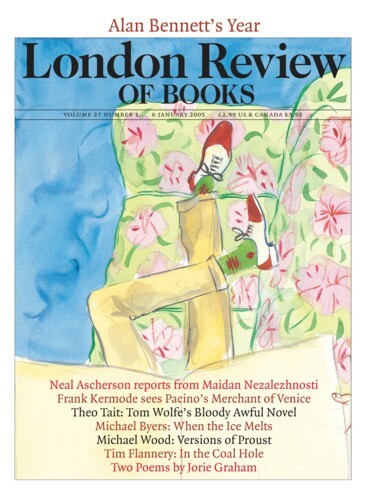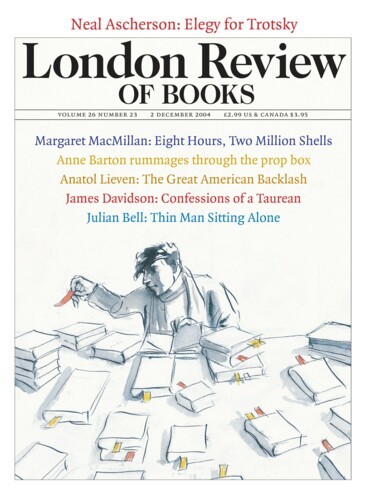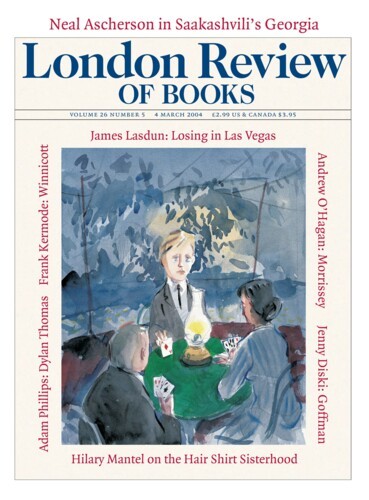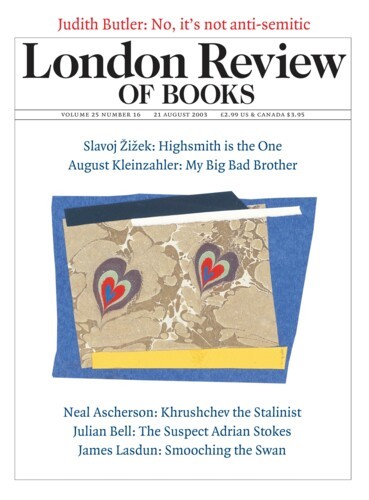Is this to be the story?
Neal Ascherson, 6 January 2005
Revolution is a staircase. In February 1848, the poet Lamartine found himself in charge of a Paris revolution, from an upper floor in the Hôtel de Ville. He identified on the staircase something as specific as a tornado: a roaring double helix formed of those fighting their way upwards and those pressing downwards. It appears whenever a society mutinies and decides to make a new world. I...





